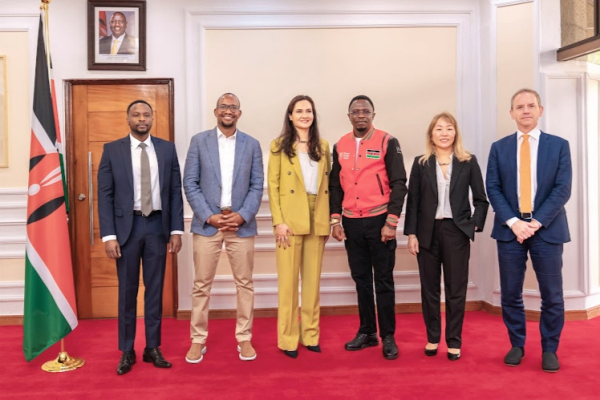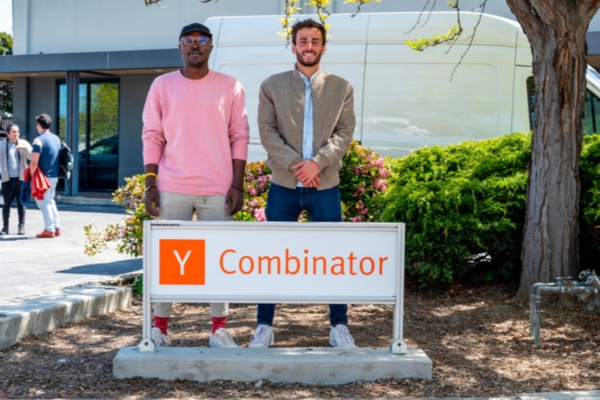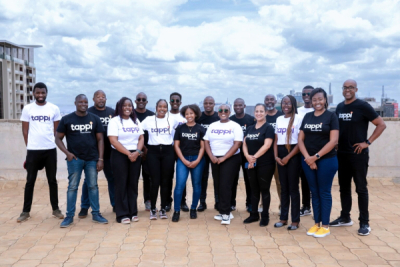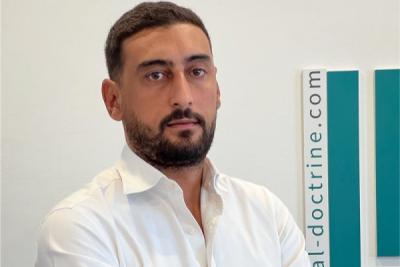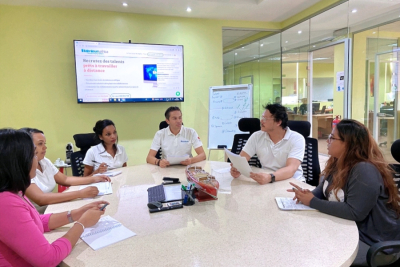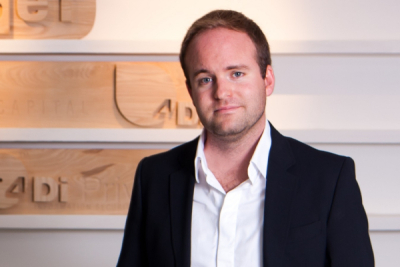Recognizing the growing influence of social networks in fostering entrepreneurship, TikTok has launched a program specifically designed to empower entrepreneurs in sub-Saharan Africa.
Chinese tech giant TikTok, partnering with the non-profit Yunus Social Business (YSB), announced on Wednesday, December 6th, a $1.5 million investment in East African micro, small, and medium-sized enterprises (MSMEs). This initiative, focused primarily on Kenya, aims to equip MSMEs with the resources, particularly digital skills, necessary for growth and success.
Through the TikTokEmpower program, TikTok will establish training and mentorship programs covering crucial topics such as brand building, sales and e-commerce strategies, and leveraging digital platforms for business success.
"This #TikTokEmpower partnership with YSB represents a transformative opportunity to empower entrepreneurs, address social challenges and stimulate sustainable economic growth in Kenya and East Africa. We've seen the profound impact and real opportunity that TikTok brings to small businesses around the world, and we're proud to encourage this entrepreneurial spirit and digital innovation in Africa," said Fortune Mgwili-Sibanda, Director of Government Relations and Public Policy for Sub-Saharan Africa for TikTok.
Before opening its Kenyan office, the Chinese giant invested in William Ruto's country with its TikTokEmpower program. In August, the social network had come close to being banned in the country before its CEO Shou Zi Chew announced the opening of physical offices to oversee its activities in East Africa after a virtual meeting with the authorities. With this investment, TikTok is increasing its involvement on the African continent where it is, according to a September report by GeoPoll, the second most-used social network after Facebook.
Adoni Conrad Quenum
Nigerian fintech startup Bujeti has completed a $2 million financing round in a deal led by Californian accelerator Y Combinator, Techcrunch reported on Thursday, December 7. The funds will be used to, among other things, introduce credit lines for small and medium-sized businesses, initiate corporate cards, and enhance its expense management platform.
Tappi, a digital solution developed by a Kenyan eponymous startup, offers a comprehensive suite of marketing tools tailored for small and medium-sized business owners, facilitating the efficient management and promotion of their online stores. Founded in 2022 by Kenfield Griffith and Louis Majanja, the Nairobi-based startup recently announced, on December 6th, the successful completion of a $1.5 million funding round to enhance its brand, attract top talent, and expand its footprint in Kenya and Nigeria.
“We are grateful to be supported by great investors who share our vision and the mission to address the untapped potential within Africa’s informal SME markets, particularly in overlooked service industries such as food services, fashion, agriculture, and health and beauty. We are eager to empower SMEs across Africa by providing them with a trusted identity online to find customers,” said Kenfield Griffith, CEO and co-founder of Tappi, celebrating the funding round.
Accessible exclusively on Android devices, the Tappi app offers a seamless user experience for creating a business profile and entering company information. The app's built-in AI functionality even helps users craft tailored business descriptions, overcoming the challenge that many businesses face in writing effective ad copy.
“We have found that most of these businesses do not have the resources to craft their ad copies well, hence low-performing ads. [...] So the tool permits them to input details about their business and get ad copy,” explains Griffith.
With this data, Tappi automates the creation of a dedicated web platform for each company, ensuring their online presence and discoverability through search engines like Google, which boasts a dominant market share within the region. From their Tappi account, users can effortlessly create and manage advertising campaigns across various social media platforms; publish targeted ads to reach their ideal customers online, and gather valuable customer feedback and reviews to build a strong online reputation.
Since its launch, the Tappi mobile app has garnered over 1,000 downloads.
Adoni Conrad Quenum
Leveraging his extensive legal and financial expertise honed at leading firms like KPMG and PwC, this entrepreneur is now building a platform that simplifies access to legislation, regulations, and court rulings across his target markets.
Walid Ghanemi (photo), an Algerian entrepreneur, is leading a revolutionary transformation in the African legal landscape through his startup, Legal Doctrine, where he serves as the founder and CEO. Ghanemi earned his bachelor's degree in business law in 2012 and a master's degree in accounting, control, and auditing in 2015 from the Algerian Higher School of Business (ESAA).
In 2018, he established Legal Doctrine, a legaltech startup that aggregates and publishes legislation, regulations, and court rulings from Algeria, Tunisia, Morocco, Senegal, Côte d'Ivoire, and Cameroon. The platform, leveraging artificial intelligence, offers a comprehensive and accessible repository for legal professionals, including lawyers, students, and businesses, providing them with in-depth analysis of legislative and regulatory texts for current and relevant information.
As arguably the first legaltech in Algeria, Legal Doctrine boasts a user base exceeding 4,000 customers who utilize its legal search engine to enhance efficiency and save time in their research endeavors. The company's contributions to the field have earned it the title of "Best African Legaltech Startup" twice, first in 2018 in Zurich and again in 2019 in Tunis.
Beyond Legal Doctrine, Walid Ghanemi also founded Algiers Arbitration Day, an annual event that convenes international arbitration practitioners to delve into the latest developments, emerging trends, and critical issues in the arbitration landscape across Algeria, Africa, and the Middle East and North Africa region.
He is also the President and CEO of the Algiers Business Law Institute. He entered the professional world in 2007 at CMS Francis Lefebvre Avocats, where he worked as a lawyer. Over the years, he transitioned to roles such as financier at Alstom Group in 2012 and tax specialist at KPMG Algeria in the subsequent year. From 2015 until the inception of Legal Doctrine, he served as an associate senior financial and tax auditor at PwC.
Melchior Koba
In 2022, Mauritius achieved a score of 1.02 points on the Startup Ecosystem Index, placing it among the highest-ranked African nations in this category, according to data released by StartupBlink. This performance can be attributed in part to the vital role played by the Mauritius Start-up Incubator.
Mauritius Start-up Incubator (MSI) is a support hub for burgeoning enterprises seeking growth and guidance in Mauritius. Established in 2016 by entrepreneur Nicolas Goldstein, MSI distinguishes itself by providing comprehensive support services, encompassing the entire journey from launch to the establishment of successful businesses.
At MSI, startups benefit from an optimal growth environment featuring modern facilities, access to a network of experts and mentors, tailored training sessions, workshops, and crucial financial and administrative support. The fully-equipped incubator offices, wired and furnished with 1 to 25 workstations, boast advanced internet technology.
Beyond physical infrastructure, MSI extends its support to consulting services for staff recruitment and aids in the establishment and accounting processes for companies in Mauritius. The incubator facilitates trademark registration, assists in securing occupation permits (OP) for expatriates, and guides businesses through various administrative procedures.
Moreover, MSI also advises companies interested in establishing themselves in Mauritius, offering insights on company incorporation, networking with offshore management entities, and navigating the complexities of obtaining work permits, occupancy permits, or other necessary authorizations for digital enterprises.
Its backers include financial institutions like Banque des Mascareignes, Barclays, Standard Bank, Bank One, MAU Bank, and Mauritius Commercial Bank, among others. They also include major corporations like Harel Mallac Group, Evaco Group, and CIEL Group.
Melchior Koba
In Africa, startups often need more funding to expand operations but most of them lack access to financial support. Justin Stanford aims to address this issue through his South Africa-based venture, 4Di Capital.
Justin Stanford (photo) is a South African self-taught engineer, entrepreneur, investor, and venture capitalist deeply committed to fostering innovation within the African technology ecosystem. As the Co-founder and General Partner of 4Di Capital, a venture capital firm headquartered in Cape Town and Atlanta, he is focused on supporting and financing high-potential technology startups.
Established in 2009, 4Di Capital, under Stanford's leadership focuses on providing crucial financial backing to African technology entrepreneurs. The firm concentrates its investments in key sectors such as digital health, online education, fintech, green technology, transport, and infrastructure. Noteworthy companies within 4Di Capital's portfolio include Aerobotics, LifeQ, Talk 360, Wasoko, and VALR.
Justin Stanford's journey into entrepreneurship began with a bold move when driven by a passion for technology, he left high school in 2000. In 2003, he co-founded ESET Southern Africa, a company dedicated to distributing ESET's high-end Internet security products in the Southern Africa region. He currently serves on the company's Board of Directors.
In 2009, he took a pivotal step in advancing South Africa's tech landscape by co-founding The Silicon Cape Initiative, a non-profit community movement. The initiative aims to foster the growth of technology startups in South Africa, with a particular focus on the Western Cape region.
"The potential we saw in the very nascent, siloed, and undeveloped local tech startup ecosystem eventually led to us founding the Silicon Cape Initiative in 2009 with my friend Vinny Lingham, to try and kickstart and catalyze things, and the creation of 4Di Capital as a Valley-style early-stage tech VC fund here in South Africa," the South African entrepreneur said, in 2015, on the reasons that prompted the creation of 4Di Capital.
Over the years, he has received numerous national and international accolades. In 2011, the Mail & Guardian ranked him among the top 200 young South Africans, and in 2013, Forbes listed him in the prestigious 30 Under 30 category of Africa's best young entrepreneurs. From 2014 to 2018, he consistently appeared on the Choiseul Institute's Choiseul 100 Africa: Economic Leaders for Tomorrow list. In 2017, he secured a spot on the inaugural list of the 100 most influential young South Africans.
Melchior Koba
Funding startups is essential for boosting innovation and entrepreneurship. Although securing funding can be tough for African startups, there's growing interest from investors who recognize the potential of supporting promising ventures.
Ex-Kaduna State governor Mallam Nasir El-Rufai (pictured) plans to establish a $100 million venture capital fund for Nigerian startups. He revealed this in a December 4 tweet.
The venture capital fund, named Afri-Venture Capital Company, is set to launch in January 2024, initially focusing on Nigeria and later on other African countries.
During a discussion with BusinessDay newspapers at the Africa Investment Forum held in November, in Marrakech, El-Rufai revealed his commitment to invest $2 million personally to kickstart the initiative. He aims to persuade like-minded investors to join, stating, "They trust our judgment, and they will come with us."
According to El-Rufai, the fund will welcome innovative ideas from various sectors, with a specific goal of bridging the gap for young Nigerians who lack mentorship and financial backing.
"I encountered students with exceptional ideas during my tenure as governor, but many lacked mentors and support," said El-Rufai. The fund aims to provide not just financial support but also networking opportunities and resources for young entrepreneurs.
Deviating from the conventional focus on Lagos, the fund will be strategically located in Abuja to foster innovation across different regions of the country.
Founding directors and initial shareholders include Jimi Lawal, Hafiz Bayero, Eyo Ekpo, and Kabir Yabo, with El-Rufai as the part-time Chairman. The fund will operate with a three to four-year investment horizon, engaging new startups and established companies facing management challenges.
The announcement has generated excitement within the Nigerian entrepreneurial community, with hopes that this venture capital fund will provide a crucial boost to the next generation of innovators and startups.
Hikmatu Bilali
Kenyan e-mobility startup BasiGo has announced the completion of a $5 million financing round. The funds, raised in the form of debt from British International Investment (BII), a British development finance institution, will be used to expand the assembly of electric buses in Kenya.
Nigerian cryptocurrency exchange platform Bitmama has acquired neobank Payday to expand the services of its platform Changera. According to information reported by TechCabal, Bitmama, valued at $30 million, has reportedly offered Payday's investors $1 million in equity and will take over the neobank's customer deposits and debts.
The founder of the TechHorizon-Tanzania program, Caroline Mohoni, is passionate about community education. In this interview, she introduces the initiative she currently champions for women in ICT-related matters.
We Are Tech: What is TechHorizon?
Caroline Mohoni: TechHorizon-Tanzania is a program that aims to bridge the digital divide in Tanzania through comprehensive training in digital and ICT skills. It caters to everyone, from those with a background in technology looking to enhance their expertise to those without technological training seeking foundational knowledge to foster innovation for self-employment or improvement in their current endeavors.
TechHorizon offers four services: an online learning platform providing courses in digital skills; community technology centers offering access to digital resources, physical training spaces, and community development activities to address the urban-rural digital gap; practical education workshops in digital skills and mobile technology extending training to remote areas; and a digital empowerment program focused on women and girls, equipping them with digital skills to reduce the gender gap in tech education and employment.
TechHorizon-Tanzania envisions significant empowerment, improved employability, educational progress, and community development. It aligns with SDGs 4 (Quality Education), 5 (Gender Equality), and 8 (Decent Work and Economic Growth).
We Are Tech: What inspired the creation of TechHorizon Tanzania?
Caroline Mohoni: The program, initially named "ICT Basic Skills with Caroo," was born in September 2021 after realizing that 60% of Tanzanians lack basic digital skills, with rural areas being even more disadvantaged as 80% of people in those areas have no access to digital technologies. Women, in particular, are disproportionately affected, with only 13% having access to the internet compared to 21% of men.
We Are Tech: What has the program achieved so far?
Caroline Mohoni: Regarding user enrollment and engagement, we have over 262 trainees who have been trained via online platforms (Zoom, Google Meet, Teams) and Vide App, a mobile application for educational content creators. As of October 2023, we have seen an impressive 28% increase in enrollments in the last 4 months. Post-training evaluations indicate an average improvement of 73% in participants' digital skills where they study or work. Our women-focused digital empowerment program has resulted in a 34% increase in women's professional participation, narrowing the gender gap in digital skills.
We Are Tech: What challenges do you face in your activities in Tanzania?
Caroline Mohoni: While striving to have a significant impact in Tanzania, TechHorizon still faces challenges such as a lack of essential services like internet connectivity and access to quality electricity in rural areas. This affects the accessibility and effectiveness of digital training initiatives. Our limited financial resources also hinder the scalability and reach of TechHorizon programs, impacting the depth and breadth of the impact our programs aim for. Cultural barriers also present a significant challenge. Cultural perceptions and attitudes toward technology and education hinder the acceptance or participation of populations in digital literacy programs, especially among certain demographic groups or in specific regions. Some societal considerations also impede women and girls from pursuing further education or careers in technology. Addressing these challenges requires a multidimensional approach, adaptive strategies, collaboration with communities and local authorities, and a commitment to long-term sustainability. At TechHorizon, we continuously work to overcome these challenges to maximize our impact and efficiency in Tanzania.
We Are Tech: What do you need to make your actions more efficient?
Caroline Mohoni: Our needs come in various forms. Adequate funding is crucial to expand programs, reach more communities, improve infrastructure, and support ongoing initiatives. We hope for the government to upgrade technological infrastructure, especially in rural areas, as it is essential to ensure reliable internet connectivity and access to necessary training resources for populations in these areas. A firm collaboration with local organizations, businesses, and government agencies can amplify our impact, facilitate community engagement, and streamline program implementation.
We Are Tech: What are your plans for the future?
Caroline Mohoni: TechHorizon has short-, medium-, and long-term goals, aiming to create a sustainable impact on Tanzanian communities.
Within two years, we aim to expand the reach of our digital literacy programs to more regions, focusing on rural and underserved areas; significantly increase enrollments in our training programs, especially among women and marginalized communities; advocate for effective improvement of technological infrastructure in targeted areas to ensure reliable connectivity for learning.
Within five years, we aim to strengthen existing programs to deepen their impact on participants by providing advanced skills and specialized training, develop strategies for program sustainability, including partnerships with local stakeholders, capacity building, and financial planning, build stronger ties within communities through technology hubs, encouraging collaboration and community initiatives.
Beyond five years, we aim to expand our initiatives nationally, establishing a more extensive network of community technology centers and mobile technology workshops across Tanzania. We also aim to make progress in reducing the gender gap in technology education and employment by aiming for more equal representation in the tech sector. Finally, we want to advocate for policies supporting digital inclusion, targeting government support and initiatives further reducing the digital divide in Tanzania.
Background:
Certified Information Systems Auditor (CISA) Caroline Mohoni works at Mkombozi Commercial Bank PLC as the Manager of ICT Audit. She is currently pursuing a Master of Business Administration in Information Technology at the Institute of Accountancy Arusha. A former employee of KPMG East Africa and the e-Government Authority (e-GA), she has made a mark in the local digital scene over the years through various achievements and accolades. She is a member of cohort 47 of the Young African Leaders Initiative (YALI) and the youth advisory council of DOT Tanzania. While still a student, in 2019, she developed a water vending system controlled by a mobile phone and integrated with a water quality monitoring device as part of the cooperation between the University of Dar es Salaam and KTH University in Sweden under the DAWASA project to address water issues in Tanzania. In 2020, she was among the 100 Tanzanian Sheroes. In March 2022, she was awarded by the Next Einstein Forum as part of the Woman Emerging Careers Awards.
More...
Digital transformation is a key pillar of President William Ruto's government, with efforts underway to digitize various sectors across the country. However, one crucial area remains untouched: the identification system. This has once again sparked resistance from the Kenyan population.
Maisha Namba, the digital identification system planned by the Kenyan government, will not see its anticipated launch this year due to a recent decision by the High Court of Kenya. The court has ordered a halt to the system's rollout, citing the absence of a data protection impact assessment.
The court's decision imposes a stay on the implementation or further progression of the government's November 1, 2023, resolution to deploy or pilot Maisha Namba, encompassing the digital card, unique personal identifier, and a national population register. This pause is mandated until a comprehensive data protection impact assessment is conducted, as stipulated in section 31 of the Data Protection Act, according to the High Court.
This legal development follows a petition filed by civil society groups, including the Katiba Institute, the Nubian Rights Forum, the Kenya Human Rights Commission, and the Coalition of Human Rights Defenders. The petitioners argue that the biometric and biographical data collected during registration were obtained unlawfully, and the government lacks a legal foundation for the digital identity system. Additionally, concerns are raised about data protection, the exclusion of many Kenyans from the system, and the expeditious rollout scheduled for this December.
This marks the second instance where the High Court has intervened to suspend the deployment of a digital identification system in the country. The previous system, Huduma Namba, initiated by former president Uhuru Kenyatta, faced similar criticisms and suspension on the same grounds.
The court emphasizes that any implementation of the system must await the completion of a data protection impact assessment, as outlined in Article 31. This article governs the collection, storage, use, and sharing of personal information, with a particular emphasis on safeguarding privacy and personal security.
Samira Njoya
With the explosion of e-commerce in Africa, efficient delivery services have become an essential cog in the wheel. In Morocco, a tech entrepreneur has embarked on the adventure to revolutionize last-mile delivery.
Kaalix, a technological solution developed by a Moroccan startup, empowers users to access a range of delivery services conveniently from their smartphones or computers. Founded in 2019 by Ilyess Hammouda, the Casablanca-based startup has quickly gained traction in the country.
Accessible through its mobile app available on both iOS and Android platforms, Kaalix offers a multitude of services. Users can effortlessly order food from their favorite restaurants, shop online at various boutiques (including grocery stores, clothing stores, and supermarkets), or directly access a courier service for delivery needs independent of existing partner stores. This flexibility allows users to pick up parcels within the city without requiring an order from a partner store or restaurant.
For restaurant and store deliveries, users can easily browse menus and catalogs, add items to their cart, and have their purchases delivered directly to their desired location. Real-time tracking of delivery drivers from within the app provides added convenience and transparency. Importantly, delivery rates are tailored to the user's location, ensuring fair and transparent pricing.
In 2021, Kaalix partnered with the e-commerce platform Marjane, expanding its reach and user base. Its rapid growth is evident in the number of downloads its Android app garnered on PlayStore. According to PlayStore, the app has already been downloaded more than 100,000 times.
Adoni Conrad Quenum
Incubators, accelerators, and fablabs are now vital players in driving technological development. In Cameroon, Kmer Tech actively supports these structures, empowering entrepreneurs and accelerating innovation.
Established in 2020, Kmer Tech is a Cameroonian network of support structures dedicated to accelerating technological and innovative entrepreneurship. Its mission is to prepare the ecosystem for a thriving digital economy, empowering incubators and startups through comprehensive support programs.
Kmer Tech champions the interests of incubators, providing them with resources and visibility through branding, lobbying, and access to valuable partnerships. It also promotes, develops, and enhances the competitiveness of startups within the network.
Responding to the challenges of the digital age, Kmer Tech launched the KMER TECH TIE project (Tech-Innovation-Entrepreneurship) in response to the COVID-19 pandemic. This national program aims to equip companies and organizations with the skills and technologies needed to address outstanding socio-economic problems in Cameroon. KMER TECH TIE usually culminates in the KmerTech TIE Champion competition–launched in December 2021, which recognizes and rewards innovative startups across various sectors. In 2022, the competition awarded six startups in the healthcare, education, and commerce sectors.
Furthermore, the network's KMER TECH ESO SUPPORT program empowers its member hubs with grants ranging from XAF100,000 to 250,000 (approximately $160 to 400), depending on their specific activities.
With over 134 members and supporting more than 22 startups, Kmer Tech plays a vital role in driving youth employment and accelerating technological entrepreneurship in Cameroon. The network receives valuable support from ST Digital, the European Union, and the French Embassy in Cameroon.
Melchior Koba
Africa's burgeoning technology ecosystem is attracting investors from around the globe, with over $2.95 billion invested in the continent's startups within the first nine months of the year alone, according to the African Private Equity and Venture Capital Association.
On Monday, December 4, the MasterCard Foundation Africa Growth Fund, a $200 million impact-investment initiative of the MasterCard Foundation, announced a $27 million investment in three African investment companies dedicated to supporting early-stage startups. The investment aims to stimulate technological innovation and accelerate digital transformation across the continent.
Chui Ventures, VestedWorld, and SME Impact Fund are the three investment companies receiving the funding, with allocations of $9 million, $10 million, and $8 million, respectively. These companies are focused on identifying and nurturing high-potential startups in various sectors, primarily in Ghana, Nigeria, Kenya, and Tanzania.
"We are excited to welcome Chui Ventures, Vested World, and SME Impact Fund to our expanding family of investment vehicles. These strategic partnerships represent our ongoing commitment to fostering sustainable development in Africa through impactful investments. Stay tuned for more developments in the very near future," commented Samuel Akyianu, Managing Director of the MasterCard Foundation Africa Growth Fund.
The establishment of the Africa Growth Fund aligns with the MasterCard Foundation's broader efforts to drive digital transformation across Africa. This year alone, the fund has invested in several startup-focused investment companies, including Nigeria's Aruwa Capital Management ($2.2 million) and Uganda's Inua Capital ($5 million). Additionally, the foundation demonstrated its support for Uganda's national startup policy, which aims to enhance the attractiveness of the country's technological ecosystem.
Commenting on the MasterCard Foundation's investment, Joyce Ann Wainaina, Managing Director of Chui Ventures, stated, "This investment validates our effort to drive African innovation and entrepreneurship, and we are eager to unlock the potential of these promising ventures."
Adoni Conrad Quenum


